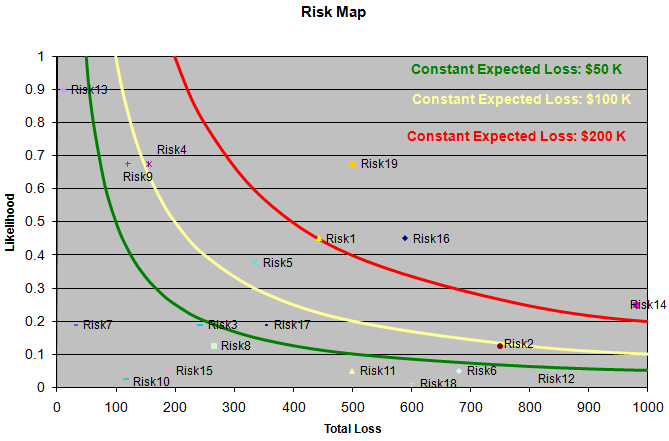As a related question to: What's the best definition and explanation of project risk?
What is the most useful way of measuring risk? I've been thought it's best to measure it in additional monetary cost to project budget. By writing down all 'risk events' and their related probabilities and incurred costs, we can calculate the 'risk value' of a project at any given moment in time.
This method seems a bit unintuitive to me though (does not really go well with the word 'risk'). I'd like to know what other methods of measuring risks are there.
